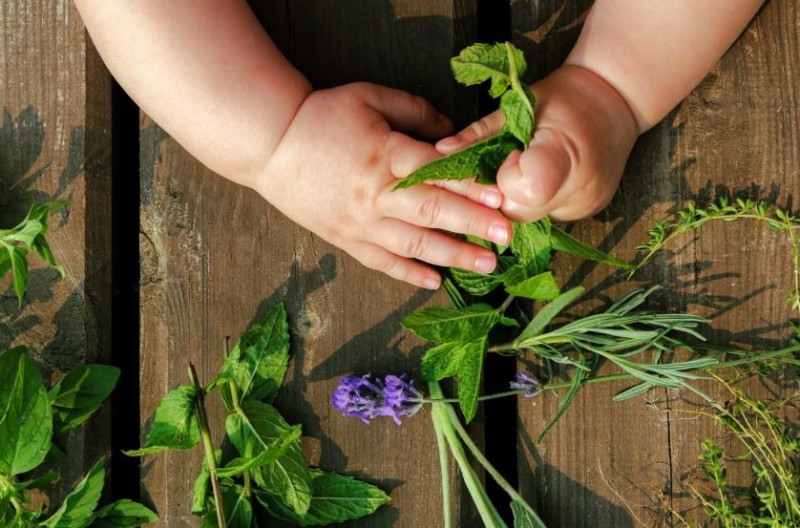
Having small children at home brings immense joy, but it also comes with the responsibility of ensuring their well-being. One effective way to support their health is by cultivating beneficial herbs in your kitchen garden. Let’s explore in detail how you can grow and utilize these herbs to promote the health and wellness of your little ones.
Importance of Herbs for Children's Health
Children often face challenges when it comes to maintaining a balanced diet, which can lead to nutritional deficiencies and weakened immune systems. This makes them more susceptible to frequent illnesses and infections. While medication can provide temporary relief, relying on natural remedies can offer long-term benefits without any adverse effects. Herbs are packed with essential nutrients, vitamins, and antioxidants that support various aspects of children's health, from digestion to skin care and immunity.
Selecting the Right Herbs for Your Kitchen Garden
When choosing herbs to grow at home, consider their medicinal properties and ease of cultivation. Opt for herbs that are safe for children and have proven health benefits. Here are some popular options:
Tulsi (Holy Basil): Tulsi is not only revered for its spiritual significance but also cherished for its medicinal properties. It contains antioxidants that promote digestion and contribute to glowing skin.
Aloe Vera: Aloe Vera is renowned for its soothing properties and is commonly used in skincare products. It can also be consumed internally to aid digestion and promote overall health.
Ajwain (Carom Seeds): Ajwain is known for its digestive benefits and can be easily grown in a kitchen garden. It adds a pleasant aroma to your home while providing relief from stomach discomfort.
Cultivating Herbs in Your Kitchen Garden
Now that you’ve selected the herbs for your kitchen garden, let’s discuss how to cultivate them effectively:
1. Choosing the Right Location: Ensure that your kitchen garden receives ample sunlight and has well-drained soil suitable for herb cultivation.
2. Planting the Herbs: Start by planting seeds or seedlings of your chosen herbs in pots or garden beds. Follow the instructions provided for each herb regarding spacing and depth of planting.
3. Watering and Maintenance: Herbs require regular watering, but be careful not to overwater them. Monitor the soil moisture and trim any dead or wilted leaves to promote healthy growth.
4. Harvesting and Usage: Once your herbs have matured, harvest them as needed for culinary or medicinal purposes. Be sure to research the proper harvesting techniques for each herb to maximize their potency.
Incorporating Herbs into Your Child's Routine
Now that you have a thriving kitchen garden, it's time to incorporate these herbs into your child's daily routine:
Tulsi Water: Boil Tulsi leaves in water and store the infused water in a bottle. Encourage your child to drink Tulsi water regularly for its digestive and immune-boosting benefits.
Aloe Vera Gel: Extract the gel from Aloe Vera leaves and apply it topically to soothe minor skin irritations or sunburns.
Ajwain Tea: Prepare Ajwain tea by boiling Ajwain seeds in water. Offer this herbal tea to your child to alleviate stomach discomfort or aid digestion after meals.
By cultivating these herbs in your kitchen garden and incorporating them into your child's routine, you can provide natural and effective support for their health and well-being. Embrace the practice of herbal gardening as a holistic approach to nurturing your child's health, and enjoy the numerous benefits it brings to your entire family.
Five Foods to Avoid for a Longer Life (You Won't Believe #3!)
How Detox Diets Works: Unlocking the Mystery and Revealing Hidden Truth
Secrets of the Longest-Living People: What They Eat May Surprise You